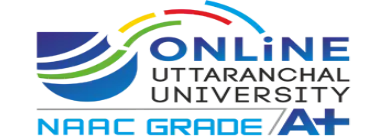An MBA in Information Technology (IT) combines business and technical abilities to successfully manage IT systems and initiatives. Indian colleges like as IIM Bangalore, IIT Delhi, and the Symbiosis Institute of Business Management have specialist degrees in this discipline. The program focuses on IT administration, business analytics, digital transformation, cybersecurity, and new technologies such as AI and blockchain. Students acquire practical experience through industry projects, internships, and case studies, which prepares them for careers in IT consulting, technology management, and digital innovation. This curriculum focuses on strategic thinking, problem-solving, and leadership abilities specific to the IT industry, preparing graduates to navigate and manage in an increasingly tech-driven business environment.
Table of Contents
MBA in Information Technology Course Details
| Degree | Master |
| Full Form | Master of Business Administration |
| Admission Process | Entrance and Merit-based |
| Eligibility Criteria | A minimum of 50% marks in graduation course from a recognized university |
| Average Course Fee | 15 – 23 Lakhs |
| Duration | 2 Years |
| Average Starting Salary | 10 – 12 LPA |
| Job Roles | IT Manager, Data Analyst, IT Consultant, Network Administrator, Database Administrator, etc. |
Why Pursue an MBA in Information Technology?
- Enhance Leadership Skills: An MBA in Information Technology equips you with the necessary skills to lead tech teams effectively.
- Specialized Knowledge: Gain in-depth knowledge of IT management, cybersecurity, data analytics, and emerging technologies.
- Career Advancement: Open doors to senior management roles and higher-paying positions in the tech industry.
- Networking Opportunities: Connect with industry professionals, alumni, and experts to expand your network.
- Practical Experience: Apply theoretical knowledge to real-world IT scenarios through case studies and projects.
- Global Perspective: Understand the impact of technology on businesses worldwide and develop a global mindset.
- Adaptability: Learn to navigate rapidly evolving tech landscapes and stay ahead in the competitive industry.
MBA in Information Technology Step-by-step Admission Process in India
To secure admission for an MBA in Information Technology in India, follow these step-by-step guidelines:
- Research extensively on top universities offering this program. Look for renowned institutions like IIM, XLRI, or IITs known for their exceptional IT management courses.
- Prepare for entrance exams such as CAT, MAT, XAT, or GMAT, focusing on the IT management section.
- After taking the entrance exam, gather all essential documents, including academic transcripts, recommendation letters, and a well-crafted statement of purpose highlighting your passion for technology and leadership.
- Ensure your resume reflects relevant work experience in the IT sector to strengthen your application.
- Once your application is ready, submit it online on the university’s admissions portal before the deadline.
- Be proactive and follow up on any additional requirements or interviews.
- Upon receiving an acceptance letter, complete the admission formalities promptly to secure your spot in the coveted MBA in Information Technology program.
MBA in Information Technology Eligibility Criteria
Candidates must meet specific criteria to be eligible for an MBA in Information Technology program. Here are the key eligibility requirements:
- Eligibility Criteria – To pursue an MBA in Information Technology, candidates must hold a bachelor’s degree in a related field such as Computer Science, Information Technology, or Engineering.
- Work experience in the IT industry is often preferred by many universities offering this program.
- Candidates might need to clear entrance exams like CAT or GMAT to be eligible for admission.
- Some universities also require a minimum GPA in the undergraduate degree for consideration.
- Proficiency in programming languages and a strong background in IT concepts can be advantageous.
- International students might need to demonstrate English proficiency through tests like TOEFL or IELTS.
- Letters of recommendation and a statement of purpose highlighting career goals are commonly required during the application process.
Popular Entrance exams for MBA in Information Technology
Here is a list of entrance exams that could help you:
| CAT (Common Admission Test) | MAT (Management Aptitude Test) |
| XAT (Xavier Aptitude Test) | ATMA (AIMS Test for Management Admissions) |
| CMAT (Common Management Admission Test) | SNAP (Symbiosis National Aptitude Test) |
| NMAT (NMIMS Management Aptitude Test) | IIFT Exam (Indian Institute of Foreign Trade) |
| IRMA (Institute of Rural Management Anand) | TISSNET (Tata Institute of Social Sciences National Entrance Test) |
MBA in Information Technology Distance Education
MBA in Information Technology Distance Education offers a flexible way to enhance tech leadership skills. This specialized program blends business acumen with IT expertise, creating well-rounded professionals. Students can learn strategic planning, cybersecurity, and project management. With a focus on emerging technologies, graduates are equipped to drive innovation in the digital landscape. Distance education allows working professionals to balance career commitments while earning a degree. The online format offers convenience and accessibility without compromising quality. Networking opportunities with industry experts and peers are still available through virtual platforms. Tech leadership skills are in high demand as businesses rely heavily on digital solutions. An MBA in Information Technology not only opens doors to lucrative career opportunities but also provides a deep understanding of how technology drives business success.
Why Choose a Distance MBA in Information Technology?
When considering pursuing an MBA in Information Technology through distance learning, there are several compelling reasons to choose this path:
- Flexibility in schedule: Distance learning allows you to balance your studies with professional and personal commitments.
- Cost-effective: Save on commuting and accommodation expenses often associated with traditional on-campus programs.
- Access to top programs: Distance education provides access to renowned universities and professors worldwide.
- Enhancing tech leadership skills: An MBA in Information Technology equips you with the knowledge and skills to lead tech-driven initiatives.
- Networking opportunities: Engage with a diverse group of professionals from different industries, expanding your network.
- Career advancement: An MBA in IT opens doors to high-paying roles and positions in tech management.
- Self-paced learning: Study at your own pace and tailor your learning experience to suit your needs.
MBA Information Technology: Top Distance Education Colleges
| Symbiosis Centre for Distance Learning (SCDL) | Indira Gandhi National Open University (IGNOU) |
| NMIMS Global Access School for Continuing Education (NGA-SCE) | Amity University Online |
| MIT School of Distance Education | Bharathiar University |
| Annamalai University DDE | Sikkim Manipal University Distance Education |
| Lovely Professional University | ICFAI University |
Top MBA Information Technology Colleges in India
Here’s a list of the top colleges that can help you unlock success in your career:
| Indian Institute of Management (IIM), Bangalore | Indian School of Business (ISB), Hyderabad |
| S.P. Jain Institute of Management and Research, Mumbai | Xavier Institute of Management and Entrepreneurship (XIME), Bangalore |
| Management Development Institute (MDI), Gurgaon | International Management Institute (IMI), Delhi |
| Narsee Monjee Institute of Management Studies (NMIMS), Mumbai | Symbiosis Institute of Business Management (SIBM), Pune |
| Institute of Management Technology (IMT), Ghaziabad | Department of Management Studies (DMS) |
Top MBA in Information Technology Colleges Abroad
Here is a list of prestigious colleges abroad known for their excellence in Information Technology Education:
| Harvard Business School | Stanford Graduate School of Business |
| Wharton School, University of Pennsylvania | London Business School |
| INSEAD | Columbia Business School |
| MIT Sloan School of Management | Haas School of Business at UC Berkeley |
| Kellogg School of Management at Northwestern University | IE Business School |
MBA in Information Technology Syllabus
Curriculum for MBA in Information Technology is structured to equip students with a blend of business acumen and tech expertise. The semester-wise breakdown includes:
| Semester 1 | Semester 2 |
|---|---|
| Principles of Management | Business Research Methods |
| Managerial Economics | Financial Management |
| Accounting for Managers | Operations Management |
| Business Communication | Human Resource Management |
| IT Basics | Database Management Systems |
| Semester 3 | Semester 4 |
|---|---|
| IT Project Management | IT Governance |
| E-Business | Cybersecurity Management |
| Strategic Management | Emerging Technologies |
| Business Analytics | IT Service Management |
| Enterprise Resource Planning | Capstone Project |
MBA Information Technology Top Recruiters
When pursuing an MBA in Information Technology in India, landing a job with a reputable company becomes a top priority. The top recruiters actively seeking graduates in this field include:
| Deloitte | IBM |
| Microsoft | Accenture |
| J.P. Morgan | and Goldman Sachs |
| eBay | Amazon |
| Flipkart |
MBA in Information Technology Jobs and Salary in India
An MBA in Information Technology opens up diverse job opportunities in India. Here are some lucrative roles and their average salaries in the field:
| Job Roles | Average Salary (per year) |
|---|---|
| IT Manager | INR 12 lakhs |
| Data Analyst | INR 6 lakhs |
| Systems Analyst | INR 8 lakhs |
| IT Consultant | INR 15 lakhs |
| Business Analyst | INR 7 lakhs |
| Project Manager | INR 10 lakhs |
| Network Administrator | INR 5 lakhs |
| Cybersecurity Analyst | INR 9 lakhs |
| Database Administrator | INR 6 lakhs |
| IT Director | INR 20 lakhs |
FAQs: MBA in Information Technology
What is the significance of an MBA in Information Technology?
An MBA in Information Technology blends business administration principles with IT expertise, preparing professionals for leadership roles in tech-driven industries.
How does this program enhance tech leadership skills?
This program equips individuals with a strategic mindset to effectively manage tech projects, teams, and resources, fostering strong leadership capabilities in the digital landscape.
What career opportunities can an MBA in Information Technology unlock?
Graduates can pursue diverse roles such as IT manager, technology consultant, chief information officer, or systems analyst, offering a wide array of career paths in the ever-evolving tech sector.
Is prior tech experience necessary to enroll in this program?
While beneficial, prior tech experience is not always a prerequisite, as the curriculum often covers foundational IT concepts alongside advanced business strategies.
















